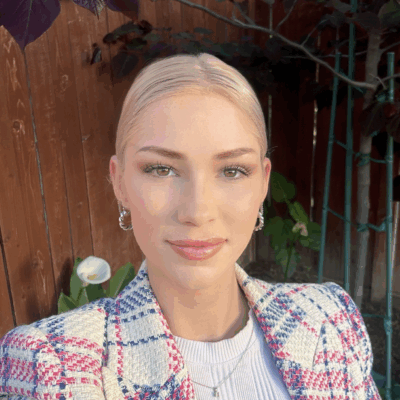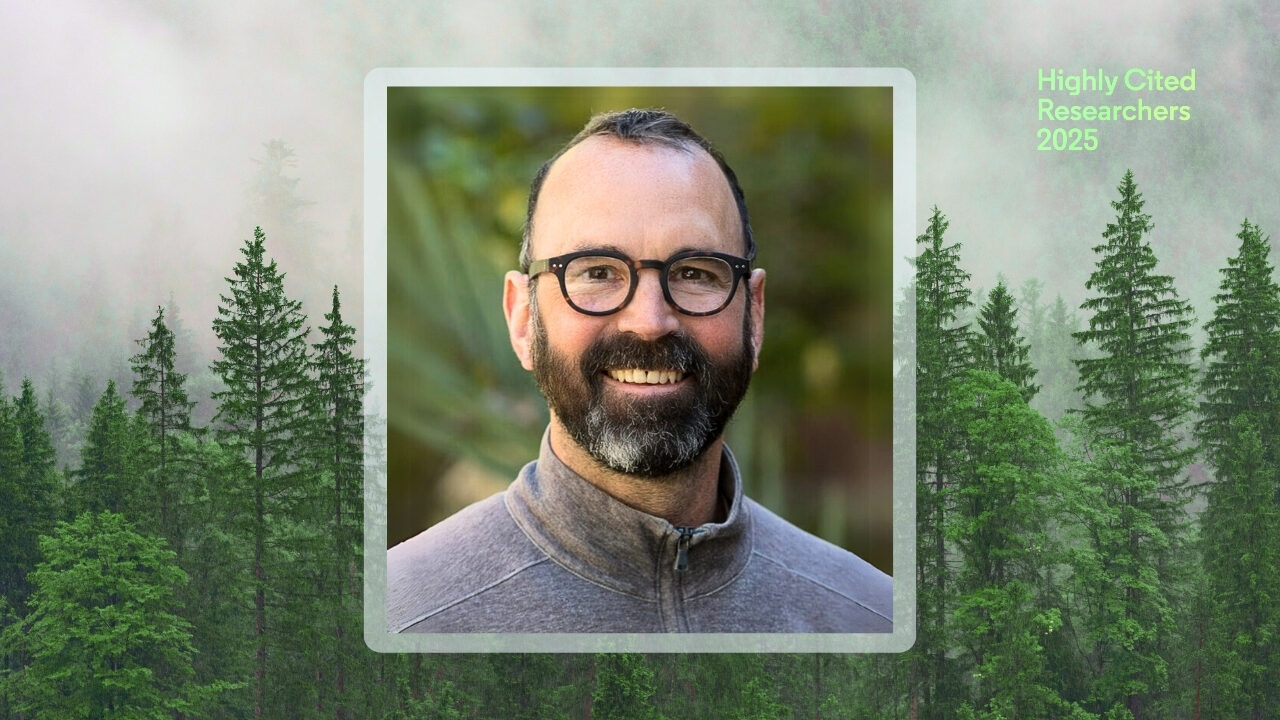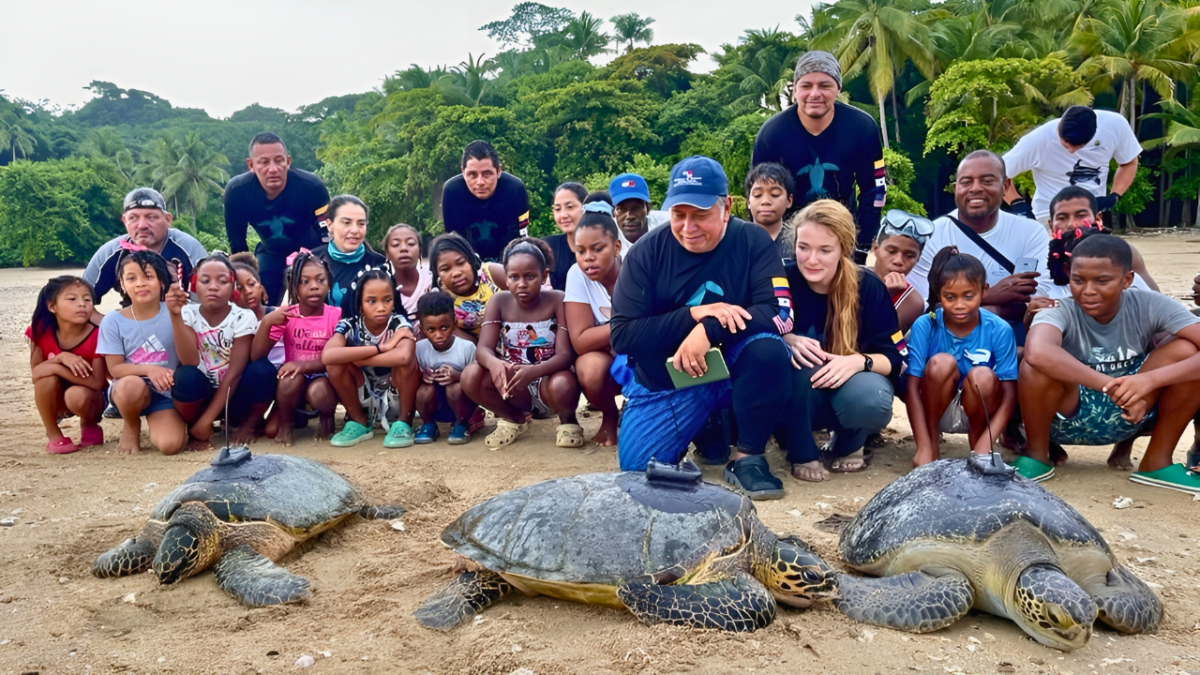
Meet the 2024 Pritzker Environmental Genius Award Candidates #11-14
Armed with technology, research and grassroots activism, the final set of candidates for the 2024 Pritzker Emerging Environmental Genius Award are at the forefront of this generation. They are tackling…
As the climate crisis intensifies, a new generation of environmental leaders is emerging.
Armed with technology, research and grassroots activism, the final set of candidates for the 2024 Pritzker Emerging Environmental Genius Award are at the forefront of this generation. They are tackling critical challenges such as illegal mining in the Amazon, climate resilience in Africa and environmental justice in Colombia.
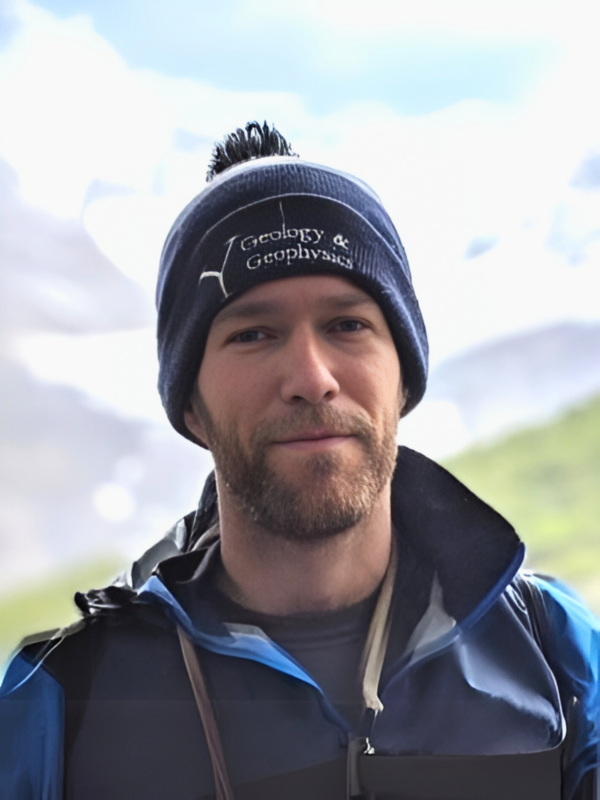
Ben Strong, science and machine learning lead, Earth Genome
As global climate challenges intensify, the need for sophisticated tools to analyze and interpret environmental changes becomes more critical than ever. As the Science and Machine Learning Lead at Earth Genome, Ben Strong develops innovative tools to analyze complex environmental datasets, aiming to enhance the understanding and management of planetary resources.
One of Strong’s most significant achievements is the development of the Earth Index platform, a tool that allows users to navigate and interpret immense datasets to monitor environmental changes. The index serves as a comprehensive resource to track critical trends with greater precision, transforming raw data into actionable insights to inform policymakers, researchers and conservationists.
Strong’s contributions reflect a deep commitment to utilizing technology for environmental protection. He leads projects like Amazon Mining Watch, which leverages artificial intelligence to combat illegal gold mining operations in the Amazon rainforest, one of the world’s most biodiverse and vulnerable regions. Through his position as an XPrize Brain Trust member and other public facing roles, he highlights how artificial intelligence can be used to create nature-centered solutions.
Looking ahead, Strong aims to expand his work at Earth Genome, using large AI models to predict and address environmental changes with unprecedented accuracy. His data-driven approach, combined with his focus on practical applications such as combating illegal mining, has the potential to pave the way for effective conservation and carbon management strategies for generations to come.

Christopher Trisos, director, African Synthesis Centre for Climate Change, Environment and Development
Climate change poses an existential threat to Africa, with studies suggesting that over 60% of the continent’s agricultural lands could become unsuitable for cultivation by 2050. Christopher Trisos is at the forefront of addressing these pressing challenges as the Director of the African Synthesis Centre for Climate Change, Environment and Development (ASCEND).
Trisos’ research integrates climate science with socio-economic data to provide a comprehensive understanding of how climate change affects African ecosystems and communities. He focuses on identifying vulnerabilities specific to different African regions, such as coastal areas facing sea-level rise and semi-arid zones experiencing intensified droughts. By translating these scientific insights into practical and targeted adaptation strategies, Trisos supports African nations in creating effective climate resilience plans. His collaborations with governments, NGOs and local communities are pivotal in developing solutions tailored to regional needs.
Under Trisos’ leadership, the Climate Risk Lab at the University of Cape Town develops tools to predict and manage climate change risks, addressing issues such as biodiversity loss, food security and the spread of infectious diseases. Trisos has contributed significantly to the Intergovernmental Panel on Climate Change as a Coordinating Lead Author for the Sixth Assessment Report — focusing on African climate impacts, adaptation and vulnerability — and has negotiated for South Africa at United Nations climate change forums, enhancing evidence-based policymaking on climate change across Africa.
Moving forward, Trisos plans to further enhance ASCEND’s capacity to integrate Indigenous knowledge into climate science, promoting a future where Africa leads in developing solutions informed by both local and global knowledge.
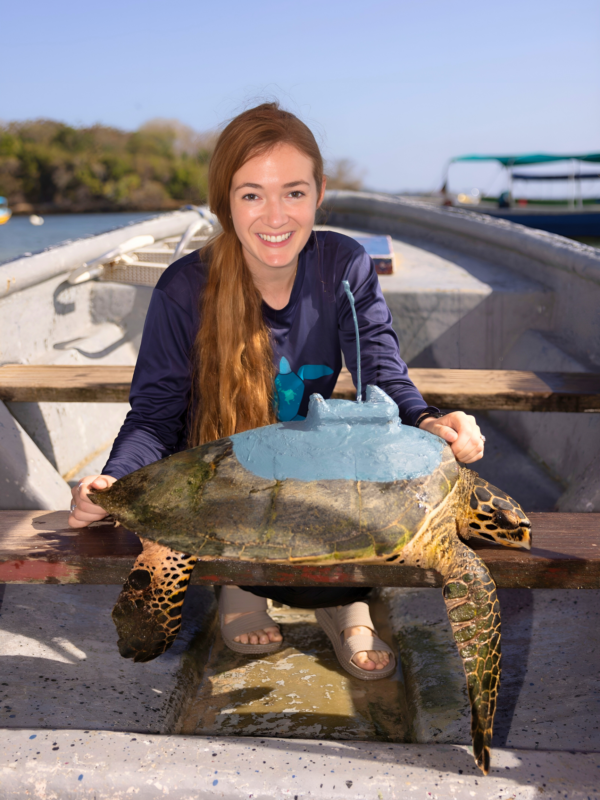
Callie Annette Veelenturf, marine biologist and executive director, The Leatherback Project
Leatherback sea turtles are among the most endangered marine species, with populations declining by over 80% in the past 30 years. Callie Annette Veelenturf, a marine biologist and conservationist, has dedicated her career to protecting these vulnerable species and their ocean habitats.
As the founder and executive director of The Leatherback Project, Veelenturf’s work is characterized by hands-on, high-impact conservation. She has conducted extensive field research in some of the world’s most remote regions, gathering critical data on leatherback nesting behaviors and threats. These insights have been instrumental in developing conservation strategies that address immediate dangers like illegal poaching and bycatch, as well as long-term issues such as habitat loss and climate change.
In addition to environmental research and policy, Veelenturf champions community involvement through The Leatherback Project’s education and outreach programs. These initiatives include conducting workshops to foster a sense of stewardship among local populations and connecting Indigenous communities with government agencies to promote effective conservation practices. Duly, she has has helped trained thousands of Panamanian Army and Navy soldiers in the recognition of illegal sea turtle products.
Veelenturf’s efforts have led to the creation of new marine protected areas and the implementation of stricter regulations on fishing practices in crucial habitats across the globe. She aims to secure a future where leatherback sea turtles thrive in healthy, protected oceans and expand The Leatherback Project’s reach so that science, policy and community action come together to ensure the survival of these ancient mariners for generations to come.

Francisco Vera Manzanares, fundator and leader, Guardians for Life
In Colombia, the frequency of extreme weather events such as floods and droughts is projected to increase by up to 30% by 2050 due to climate change. Francisco Vera Manzanares is addressing these pressing issues through his substantial leadership and activism efforts in Guardians for Life.
Since becoming an environmental activist at the age of nine, Francisco mobilized thousands of young Colombians to participate in climate strikes and advocacy campaigns aimed at raising awareness and driving policy changes. Francisco’s strategic approach combines large-scale public demonstrations with grassroots education. His organization conducts climate workshops in schools and communities, equipping young people with the knowledge and skills to advocate for effective climate policies.
Francisco has defended the human right to a healthy environment by serving as an advisor and ambassador to major organizations like the United Nations, UNICEF and the European Union Delegation in Colombia. His efforts have influenced national climate policy, leading to recent government commitments to enhance greenhouse gas reduction targets and increase climate adaptation funding. Under his leadership, he has spearheaded nationwide climate strikes that draw thousands of participants and spotlight Colombia’s vulnerability to climate change.
Looking forward, Francisco plans to strengthen alliances with other Latin American climate groups and create a regional network of youth activists. His goal is to amplify the impact of climate advocacy efforts across the continent and drive systemic changes that address both environmental and social dimensions of the climate crisis. Through his activism, Francisco is ensuring that Colombian youth play a central role in shaping a sustainable future for their country.

